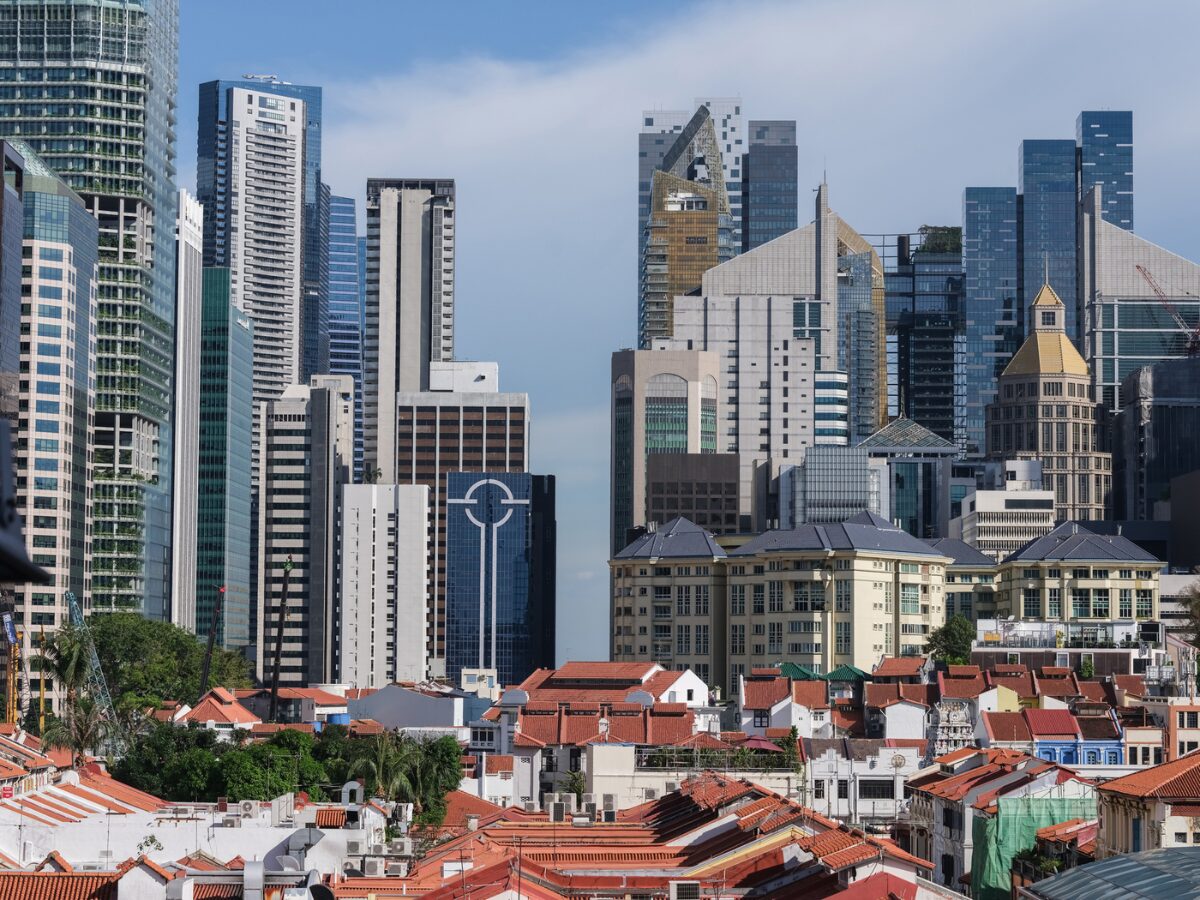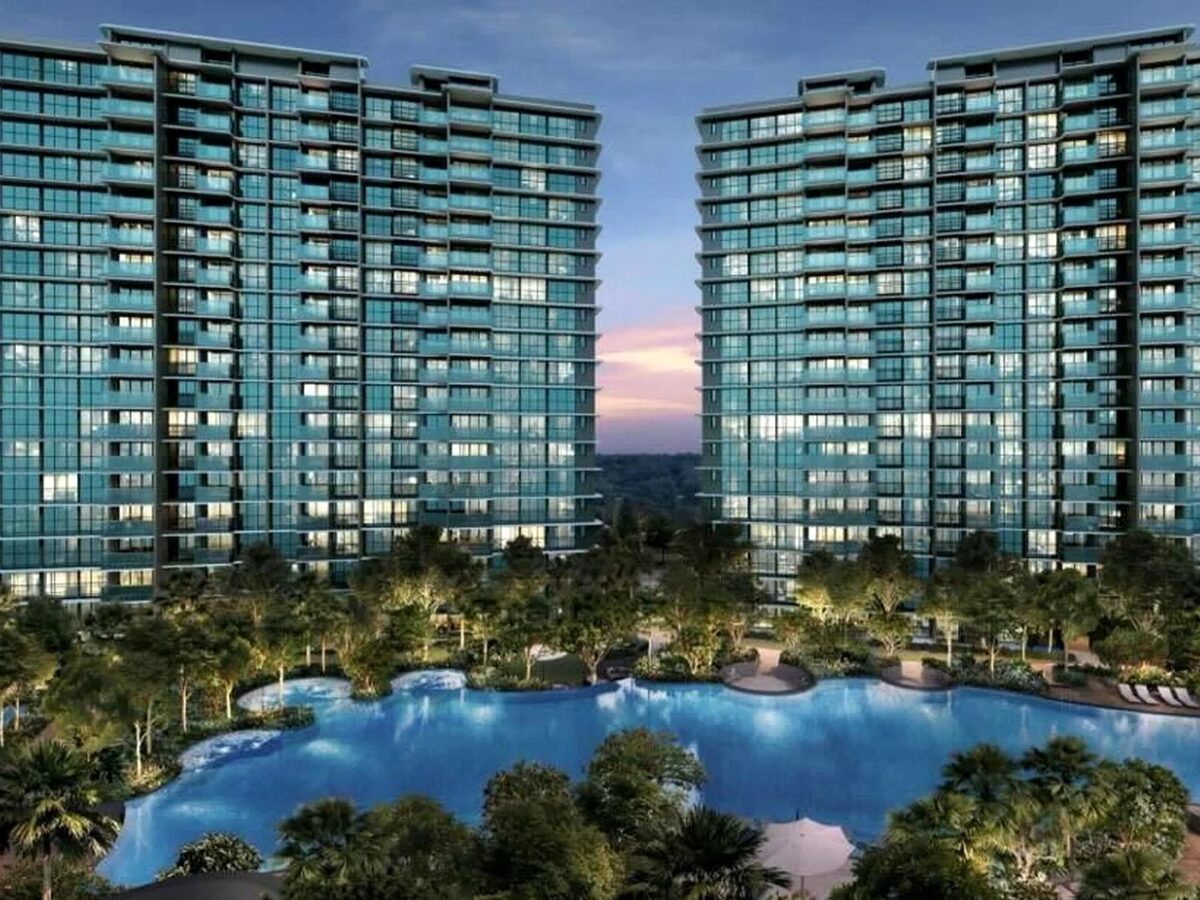If you missed this week’s Open House episode with hosts Susan Ng and Felicia Tan, here’s your full recap. The first half of the show unpacked the Residential Property Act (RPA) with guest Nicholas Poa, Executive Vice President of Operations & Legal at ERA Singapore. The second half shifted focus to Chuan Park, a major redevelopment at Lorong Chuan, with guest Raymond Tiah, Group District Director at PropNex Realty.
Together, these conversations shed light on the rules governing foreign and PR property ownership – and the developments shaping Singapore’s private housing scene.
Table of contents
- What the Residential Property Act (RPA) means for you
- Spotlight on Chuan Park: A modern comeback in Lorong Chuan
What the Residential Property Act (RPA) means for you
Passed in 1976, the RPA was designed to protect Singapore’s limited land and ensure housing affordability for citizens. As Nicholas explained, the law restricts who can buy certain types of properties, especially landed homes, to prevent speculation and maintain a fair playing field. Under the RPA, foreigners must seek approval before buying restricted properties. This includes:
- Landed homes such as terrace, semi-detached, and bungalow houses.
- Vacant residential land.
- Shophouses used for residential purposes.
These properties are not completely off-limits, but approval is rarely granted. The Singapore Land Authority (SLA) assesses each case individually, focusing on how “rooted” the applicant is to Singapore – such as how long they’ve lived here and what contributions they’ve made to the country.
Nicholas emphasised that the rule has remained relevant for decades. Even when Singapore first debated the Act in the 1970s, the country was already a property investment hotspot. The same concerns about speculative buying and housing scarcity still hold today.
What foreigners can buy freely
Foreigners are generally eligible to buy condominiums, apartments, and certain strata-landed homes within approved developments. However, Nicholas cautioned that you should always verify whether a project is officially approved for foreign ownership before putting down an option fee.
He added that the conditions are strict for good reason. Landed property in Singapore is a scarce resource – and the system ensures that ownership remains primarily with citizens while allowing foreign participation in less limited housing segments.
How the rules differ for PRs
 If you’re a Permanent Resident (PR), your situation sits between a Singaporean and a foreigner. Nicholas outlined what you can buy:
If you’re a Permanent Resident (PR), your situation sits between a Singaporean and a foreigner. Nicholas outlined what you can buy:
- HDB flats: PRs can buy resale HDBs if they meet certain conditions, such as forming a family nucleus with a Singapore citizen. Foreigners, on the other hand, can only buy an HDB if married to a Singaporean, and even then, restrictions apply to flat types and grants.
- Executive Condominiums (ECs): PRs can buy resale ECs after their 5-year Minimum Occupation Period. Foreigners must wait until ECs are fully privatised after 10 years.
- Private Condominiums and Apartments: These are open to everyone – citizens, PRs, and foreigners alike.
This tiered approach, Nicholas explained, balances inclusivity with national priorities. It lets long-term residents integrate into the property market without displacing citizens from limited housing types.
Buying under companies, trusts, and joint ownership
A key misconception is that you can bypass the RPA by buying through a trust or company. Nicholas clarified that this is not true. In fact, the Act prohibits holding restricted residential property on trust for a foreigner, and doing so is a criminal offence.
For companies and limited liability partnerships, the same rules apply. If the entity has foreign shareholders or directors, SLA approval is still needed. The underlying ownership, not the corporate wrapper, determines eligibility.
When it comes to joint ownership, the rules remain firm. For example, if a Singapore citizen and a foreign spouse wish to co-own a landed house, approval is required. Nicholas noted that while one workaround is to purchase the property under the citizen’s name, it introduces challenges in financing since the loan is assessed only on that person’s income.
Common misconceptions and hidden costs
Nicholas addressed two persistent myths:
- Having a Singaporean spouse automatically grants eligibility to buy landed property. It doesn’t – approval is still required.
- Foreigners can freely buy landed homes at Sentosa Cove. They can’t – approval is still needed, though it’s usually less stringent than for mainland properties.
He also reminded listeners of the Additional Buyer’s Stamp Duty (ABSD) – currently 60% for foreigners. This hefty rate comes on top of the standard Buyer’s Stamp Duty. Together, they form a significant upfront cost that must be budgeted carefully.
Beyond taxes, financing limits can also surprise buyers. Banks lend based on income and other criteria, and many buyers overestimate their purchasing power without considering these restrictions.
How the laws Interact with other property acts
While the Residential Property Act, Land Titles Act, and Strata Titles Act all govern property ownership, Nicholas explained that they serve different purposes. The RPA determines who can buy what, while the others focus on ownership rights and land title registration. Their overlaps are minimal and mostly technical – meaning eligibility is decided primarily under the RPA.
Rather listen to this podcast? Head over here: Open House: A radio show/collabo between CNA 938 and 99.co
Will the RPA change anytime soon?
Despite Singapore’s global ambitions to attract foreign talent and investment, Nicholas doesn’t foresee major changes to the RPA in the near term. He said the existing framework already allows exceptions, and the government’s discretion provides enough flexibility.
However, he pointed out that applicants setting up family offices or business operations in Singapore can apply directly to SLA. The process allows them to demonstrate their long-term commitment to Singapore through investments, employment, or social contributions – factors that may strengthen their case.
His final advice was simple but practical: consult early and get professional help. Before signing any option-to-purchase, speak to the SLA about eligibility, and engage a lawyer, banker, and agent who understand the process. Property transactions are major commitments – and proper due diligence prevents costly mistakes.
Spotlight on Chuan Park: A modern comeback in Lorong Chuan
 Switching gears, Susan and Felicia also explored Chuan Park, the long-awaited redevelopment at Lorong Chuan, with insights from Raymond Tiah of PropNex Realty.
Switching gears, Susan and Felicia also explored Chuan Park, the long-awaited redevelopment at Lorong Chuan, with insights from Raymond Tiah of PropNex Realty.
The new Chuan Park sits on a massive 400,000-square-foot site, roughly the size of six football fields, and will feature 916 residential units. The project marks the first major launch in the area in over 14 years, replacing the old Chuan Park that was sold en bloc.
A development designed for every lifestyle
According to Raymond, the site is divided into three thematic zones:
- The Vibrant Courtyard welcomes residents with community areas and quiet lawns.
- The Central Waterfront hosts the water facilities, including a 50-metre lap pool, an 80-metre “Oasis Pool,” and multiple kids’ wading and play areas.
- The Calming Forest offers peaceful landscapes with water features and shaded barbecue spots.
About 70% of the entire site is devoted to landscaping, giving residents ample green space to enjoy. Facilities are extensive and thoughtfully planned – including a 104-square-metre gym, a large function room for up to 120 guests, a sunken tennis court, and a hotel-style sunken lounge with jacuzzis and hydrotherapy pools.
Two strata commercial units will serve daily conveniences like grocery stores or laundry services, ensuring practicality within the development.
Views, layouts, and unit mix
Chuan Park comprises five residential blocks – three at 22 storeys and two at 19. Depending on orientation, units offer views of either the surrounding landed homes, the city skyline, or internal pool landscapes.
The mix of 2- to 5-bedroom units caters to a broad spectrum of buyers, from young couples to multi-generational families. Raymond highlighted that layouts are efficient and family-friendly, with sufficient space even in smaller configurations – something older nearby projects sometimes lack.
Who’s buying and why
Since its launch last year, 93% of Chuan Park’s buyers have been Singaporeans, with the remaining 7% being PRs. Many are HDB upgraders, while others are parents buying for children or vice versa – reflecting strong local demand for quality homes in established neighbourhoods.
Investors have also shown interest, especially in smaller 2-bedroom units that cater to tenants working in nearby business districts or studying at international schools.
Read more here: Record-breaking sales for Chuan Park on 10 Nov
A location that ticks every box
Lorong Chuan is a mature and centrally located residential area within Serangoon. It offers excellent connectivity, being just 120 metres (about a minute’s walk) from Lorong Chuan MRT on the Circle Line.
With the upcoming Cross Island Line opening in 2030, travel across the island – from Changi to Jurong – will become faster and more direct. This, Raymond said, could make owning a car unnecessary for many residents.
For drivers, access is equally convenient. Major expressways like the CTE and PIE are just minutes away, connecting to the city or the west and east of Singapore in under 15 minutes.
Schools, community and long-term value
Families are a major target group here. The project sits within 1 km of several sought-after schools, including Kuo Chuan Presbyterian Primary, Zhonghua, CHIJ Our Lady of Good Counsel, St. Gabriel’s, and Yangzheng Primary.
There are also three international schools – Stamford American International, Brighton College, and Australian International School – providing a steady tenant pool.
Nearby amenities include Serangoon Nex, upcoming cycling trails, and a new polyclinic, all part of the area’s planned transformation into a more car-lite, wellness-oriented district.
Comparing with older developments
Raymond noted that while nearby condos such as The Scala, Goldenhill Park, and Chiltern Park remain popular, their smaller land plots and older layouts give Chuan Park an edge. For example, Scala’s second bedrooms can only fit single beds, and Goldenhill Park’s west-facing units may face heat issues.
At an estimated S$2,500+ per square foot, Chuan Park’s pricing sits above older resale condos (around S$2,200+ psf) but reflects its newness, facilities, and prime location.
Interested in New Launches? Calculate your payments with 99.co’s Progressive Payments Calculator!
Looking ahead
The Lorong Chuan area is set for further rejuvenation, with new Government Land Sale (GLS) plots expected nearby. These future launches are likely to enter the market at higher prices, which could uplift Chuan Park’s long-term value.
The combination of modern facilities, excellent accessibility, reputable schools, and future growth potential makes Chuan Park appealing not just to families, but also to young professionals and investors.
The post [Open House] Understanding property ownership laws and a closer look at Chuan Park appeared first on .

